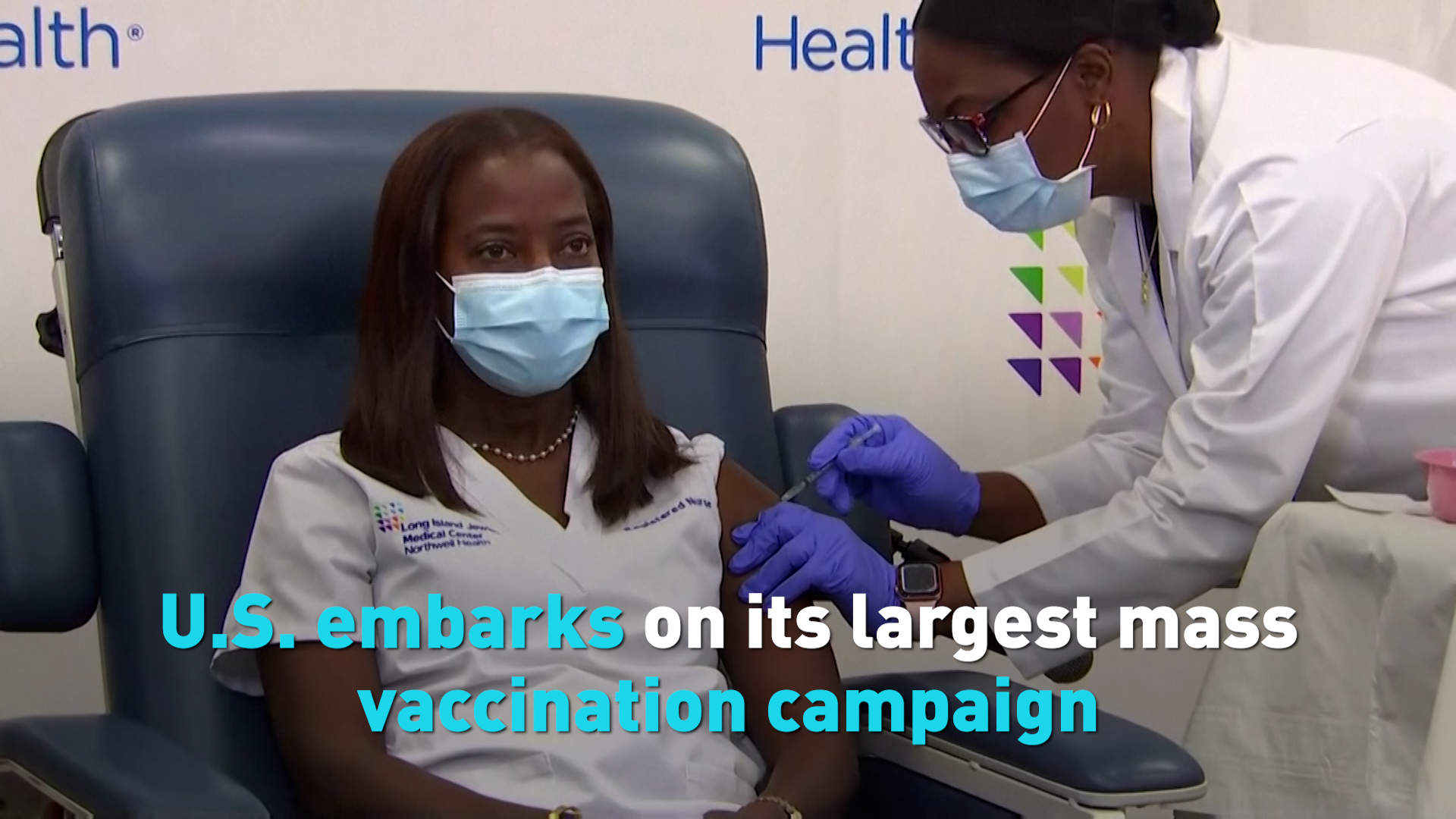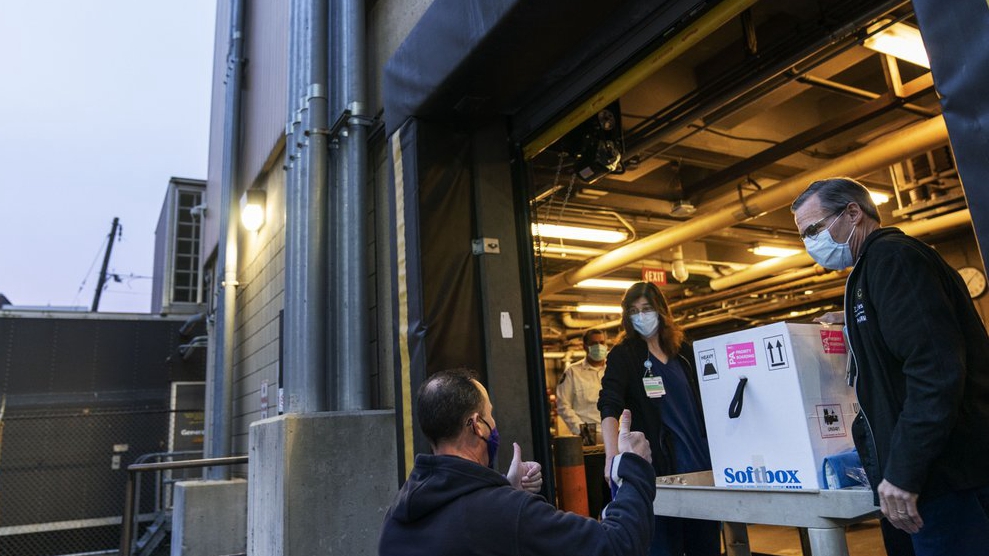02:35

Healthcare workers around the United States rolled up their sleeves for the first COVID-19 shots on Monday as hope grew that an all-out vaccination effort can defeat the coronavirus, which has caused 300,000 deaths since the first case was reported in the country in January.
'Relieved, healing is coming'
"Relieved," proclaimed critical care nurse Sandra Lindsay after becoming one of the first to be inoculated at Long Island Jewish Medical Center in New York. "I feel like healing is coming."
In Colorado, Governor Jared Polis personally opened a delivery door to the FedEx driver and signed for a package holding 975 precious frozen doses of vaccine made by Pfizer Inc. and its German partner BioNTech.
The shots kicked off what will become the largest vaccination effort in U.S. history, one that could finally conquer the outbreak.

A FedEx driver gives a thumbs up after delivering a box containing the Pfizer-BioNTech COVID-19 vaccine to pharmacists at Rhode Island Hospital in Providence, Rhode Island, U.S., December 14, 2020. /AP
A FedEx driver gives a thumbs up after delivering a box containing the Pfizer-BioNTech COVID-19 vaccine to pharmacists at Rhode Island Hospital in Providence, Rhode Island, U.S., December 14, 2020. /AP
Some 145 sites around the country, from Rhode Island to Alaska, received shipments, with more deliveries set for the coming days.
High-risk health care workers were first in line. Residents at nursing homes, which make up a large part of the deaths, also get priority.
The campaign began the same day the U.S death toll from the surging outbreak crossed the 300,000 threshold, according to data from Johns Hopkins University.
The number of dead is more than five times the number of Americans killed in the Vietnam War. It is equal to a 9/11 attack every day for more than 100 days.
Later this week, the FDA will decide whether to approve the COVID-19 vaccine made by Moderna Inc.

A vial of the Pfizer-BioNTech vaccine for COVID-19 sits on a table at Hartford Hospital in Hartford, U.S., December 14, 2020. /AP
A vial of the Pfizer-BioNTech vaccine for COVID-19 sits on a table at Hartford Hospital in Hartford, U.S., December 14, 2020. /AP
Worries about the vaccines
The huge American population, the current holiday season and some reported side effects could all have some impact on the vaccination project.
While the U.S. hopes for enough of both vaccines to vaccinate 50 million more before February, there won't be enough for the average person to get a shot until spring.
"We're also in the middle of a surge, and it's the holidays, and our health care workers have been working at an extraordinary pace," said Sue Mashni, chief pharmacy officer at Mount Sinai Health System in New York City.
Plus, the shots can cause temporary fever, fatigue and aches as they rev up people's immune systems, forcing hospitals to stagger employee vaccinations.
"We know it works well," said Ochsner infectious-disease expert Dr. Katherine Baumgarten, who got her shot on Day 1. "As soon as you can get it, please do so."
Regulators in Britain are investigating a few severe allergic reactions. Vaccine providers are instructed not to give the vaccine to those with a known history of severe allergic reactions to any of its ingredients.
It's still not clear whether the vaccine is effective at stopping the symptomless spread, which accounts for half of all cases. And whether children and pregnant women can get inoculation is under study.
(Cover photo: Hannah White (L), a registered nurse and the first person in the state of Oklahoma to receive Pfizer's coronavirus vaccine, embraces acting Oklahoma State Commissioner of Health, Dr. Lance Frye after receiving her injection at Integris Baptist Medical Center in Oklahoma City, U.S., December 14, 2020. /AP )
(With input from AP)

